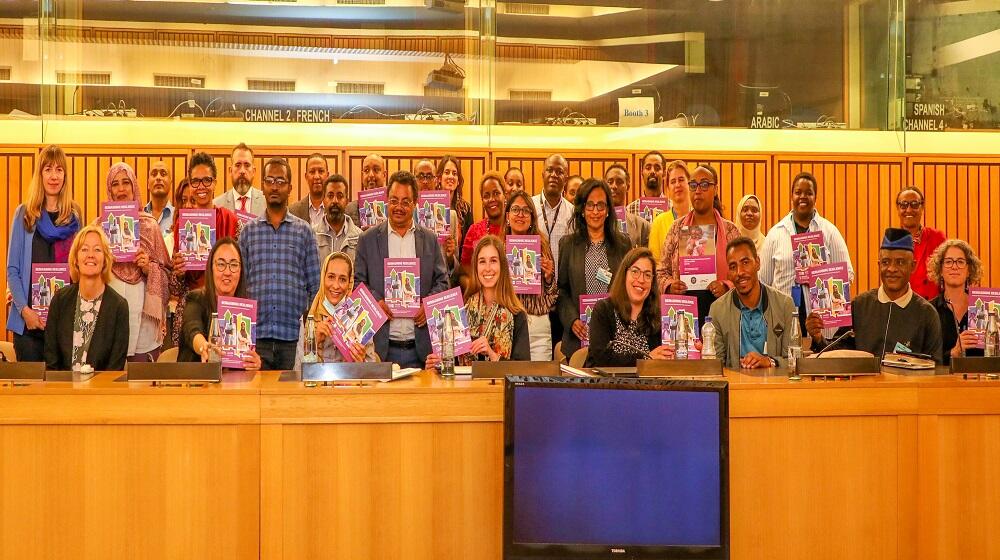The 2022 Annual Report of the global UNFPA-UNICEF Joint Programme on the elimination of Female Genital Mutilation (FGM) was launched today in the presence of a senior official of the Ministry of Women and Social Affairs of Ethiopia, the members of the Steering Committee of the Joint Programme and the members of the national alliances to end FGM and child marriage in Ethiopia.
The annual report focuses on "reimagining resilience" to address the impact of the poly-crisis on gender equality and women's empowerment. The report highlights the launch of Phase IV (2022-2030) of the Joint Programme, which emphasizes promoting girls' agency, achieving transformative change through social movements, strengthening partnerships with women-led organizations, expanding global influence, and leveraging public-private partnership.
Despite challenges posed by the poly-crisis, the Joint Programme delivered impressive results across the 17 countries of its implementation. By centring on adolescent girls' agency, voice, and leadership, and scaling up partnerships with grassroots women- and youth-led organizations, the Joint Programme furthered its commitment to address gender equality and fostering resilience against FGM. Innovation and technology were harnessed to overcome obstacles and develop new solutions to tackle FGM.
The 2022 Global Annual Report showcases key accomplishments, lessons learned, and our priorities for the future. It also underscores the pivotal role of adolescent girls and young women in leading transformative change, alongside grassroots organizations and social movements, while leveraging innovation and technology to sustain momentum towards gender equality and the elimination of FGM.
The following programmatic results were achieved in 2022:
● Around 1.2 million people participated in public declarations.
● Around 18.8 million people were reached through mass and social media campaigns.
● 281,595 girls and women received services in healthcare, social welfare, and access to justice.
● Around 2.5 million people actively engaged in community dialogues.
● 660,359 girls benefited from comprehensive sexuality education and life skills programs.
● 433,247 men and boys engaged in activities promoting gender equality and positive masculinities related to FGM
● 49,681 religious, community, and traditional leaders publicly denounced FGM as a harmful practice.
● 3,663 communities established surveillance structures to monitor and report FGM cases.
Additionally, the 2022 Global Annual Report includes 17 country profiles, providing further insights into the results and strategies implemented in each country: Burkina Faso, Djibouti, Egypt, Eritrea, Ethiopia, Gambia, Guinea, Guinea-Bissau, Kenya, Mali, Mauritania, Nigeria, Senegal, Sudan, Somalia, Uganda, and Yemen.


